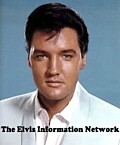 |
 |

Sweeping generalisations and broad claims abound in
In later years, it would become a source of intense frustration to Elvis that he was never able to locate his brother’s grave site. He [Elvis] developed an intense dislike and resentment of other entertainers. Of as much, if not greater concern, are some of the incidents that Elvis and Juliet hooked up back in Vegas for a couple of days before she headed to So The author also has Elvis playing most days with his ‘cousin” Earl in Tupelo and the Presley and Greenwood families often sharing dinner; Elvis spurned by the person he saw as his saviour from a painful past and uncertain future, Dixie Locke; and Elvis as a sexual predator who looked down on women: Elvis used women with relish but considered them cheap. His attitude toward them was harsh, even hostile, once the sex was over. Other questionable incidents have Elvis losing his virginity to an older woman called Laura and an orgy with “cousin” Earl and 4 girls, none of whom was aged over 17. On the first claim, the fact is Elvis didn’t fit the music mould Opry fans were used to but they offered him polite, if restrained applause at the end of his set, and Opry head, Jim Denny, did not tell Elvis he should go back to driving a truck. On the 2nd claim, Elvis in fact finished 5th in the contest and there is even a photo to prove it in Bill E. Burk’s excellent book, Early Elvis: The Tupelo Years. “I thought we agreed I’d get to do some other things?” “You don’t tamper with success,” Parker told him. “Maybe later.” It’s always later. I don’t see why I have to keep waiting.” That this book was commissioned by Greenwood Press (no apparent connection to Earl Greenwood) as part of its Greenwood Biographies series, to meet high school and library needs, is alarming. The author’s use of alleged personal conversations and fanciful incidents means students and library goers are receiving a skewed, factually corrupt and less than quality biography. It raises serious questions about quality control within the EIN Website content © Copyright the Elvis Information Network. .
. |
|



